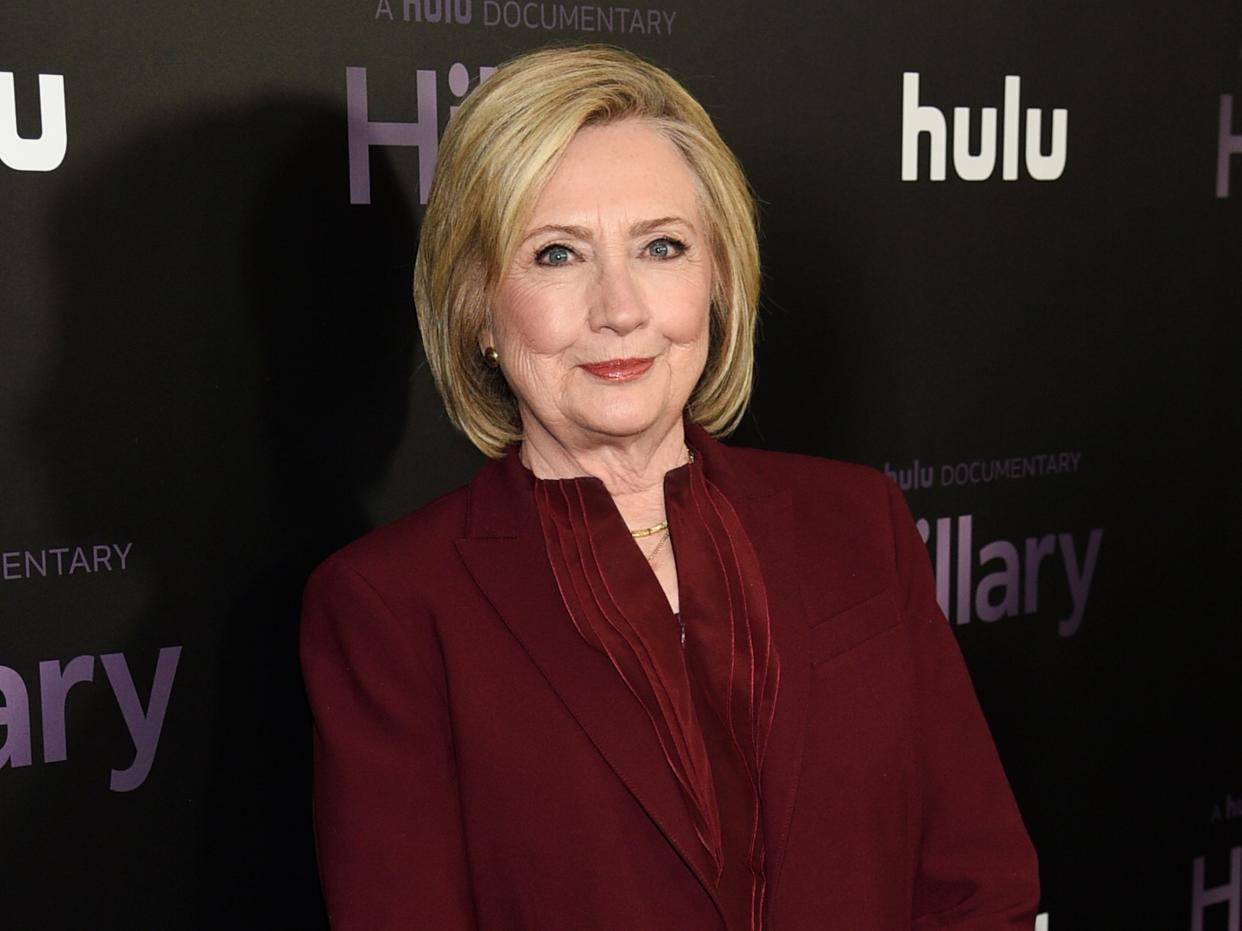Hillary Clinton calls on Biden to share vaccines with poorer nations

The former Secretary of State said she was ‘intrigued’ and a ‘little saddened’ by the fact that both Russia and China are ‘pushing their vaccines’
(Evan Agostini/Invision/AP)- Oops!Something went wrong.Please try again later.
- Oops!Something went wrong.Please try again later.
Hillary Clinton has called on Joe Biden to do more to share vaccines with poorer nations, saying the United States should be leading the way in "vaccine diplomacy".
In an interview on Monday, the former Secretary of State said she was “intrigued” and a “little saddened” by the fact that both Russia and China are “pushing their vaccines” in a way the US has not.
“So this is the kind of leadership that the United States has historically been known for which frankly we should be lifting up and doing more of,” she said.
The former presidential candidate said that the countries were demonstrating “vaccine diplomacy” in sharing their coronavirus vaccine candidates with other countries.
“They are going into countries and saying we’ll take care of you,” she said, adding that their strides in doing so “leaves the United States playing catch up.”
Read more:
Krispy Kreme sparks controversy by offering a free doughnut to anyone vaccinated
Citizen journalist faces criticism for livestreaming Boulder mass shooting
Three fully vaccinated Hawaii residents test positive for Covid
“Now, of course, we have to vaccinate our whole population but from what I’m told we’re going to have more than enough supply to do that,” she said.
Last week, Mr Biden announced that his administration would reach his pledge of 100 million vaccine doses within his first 100 days of office 42 days ahead of schedule.
The president said earlier in March that the country would have enough Covid vaccine doses for every American adult by the end of May, a revision of his earlier timeline to have enough by the end of July.
However, poorer countries across the world are encountering shortages of Covid-19 vaccines as richer nations scoop up the Western-made versions or manufacturers struggle with limited production capacity.
Not only will poorer countries be forced to wait for shots, possibly for years to come, but many are already being charged much higher prices for every dose.
The head of the World Health Organisation (WHO) Tedros Adhanom Ghebreyesus warned in January that unfair vaccine distribution would risk a “catastrophic moral failure” saying it would also “prolong the pandemic."
"Not only does this me-first approach leave the world’s poorest and most vulnerable at risk, it is also self-defeating," Dr Tedros said at the opening of the body’s annual executive board meeting.
As Covid continues to spread globally, there are more opportunities for the virus to mutate over time and create new variants, such as the more transmissible B117 variant detected in the United Kingdom.
Ms Clinton stressed during the interview that “we don’t know yet whether these variants are going to cause a big problem in some parts of the world, whether they’re going to cause some of the vaccines not to be effective”.
“We still have a lot to learn and we’re not at the end of this, she said. “When the vast majority of the world is not yet vaccinated, that is like a petri dish for more variants to develop.”
Ms Clinton concluded by warning: “We are walking a fine line here. Let's vaccinate us but at the same time let's do everything we can to try to provide as much vaccination support to the rest of the world as possible.”
The US has recorded more than 29.9 million cases of the novel coronavirus and over 534,000 deaths since the pandemic gripped the country last March.

